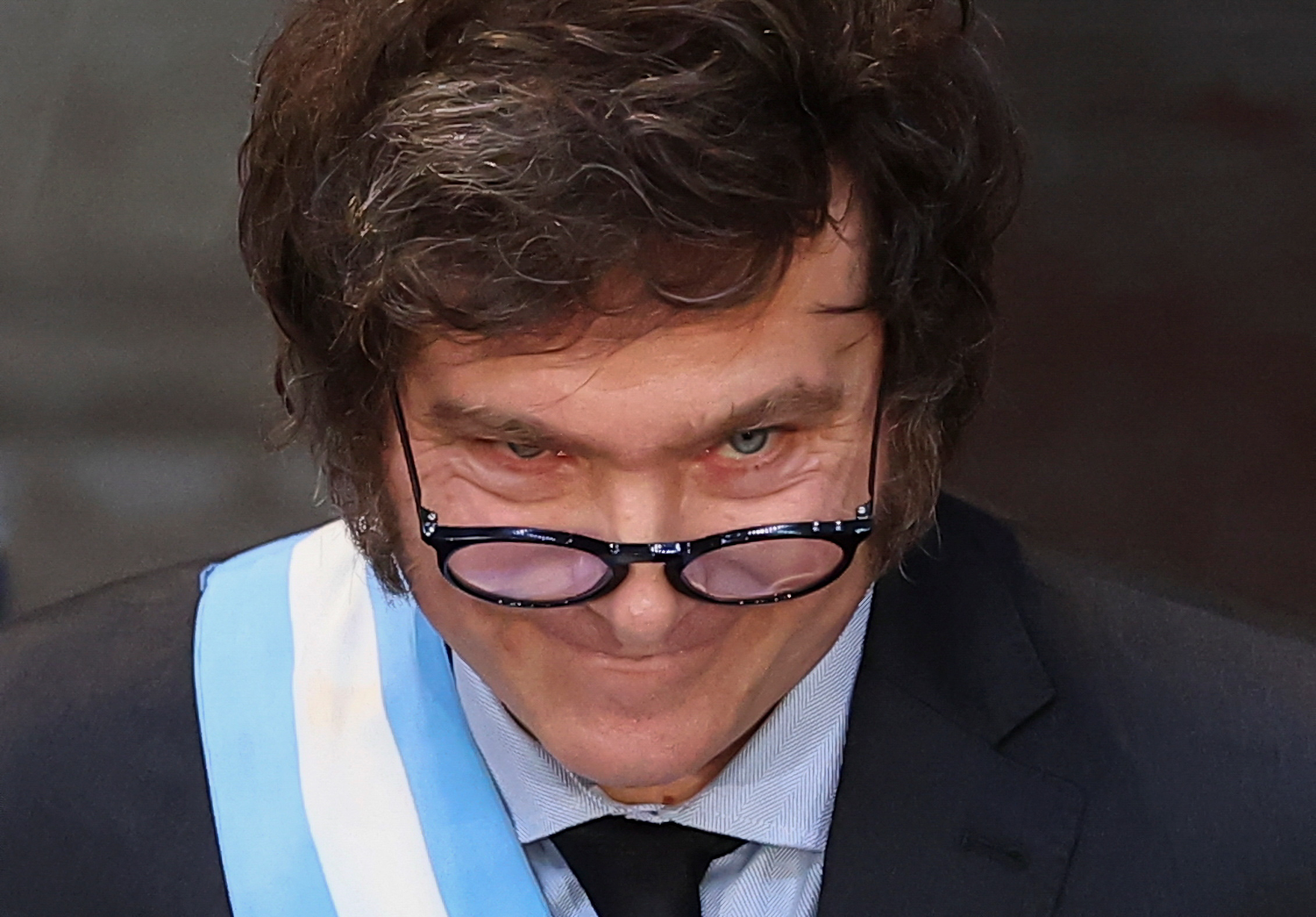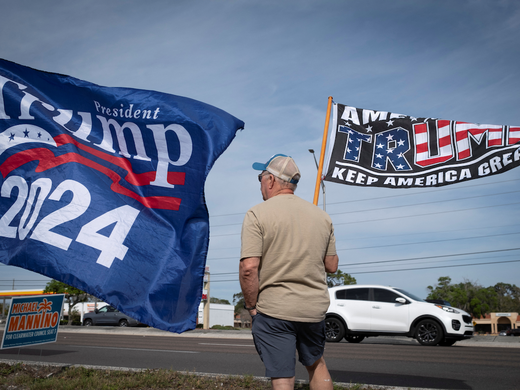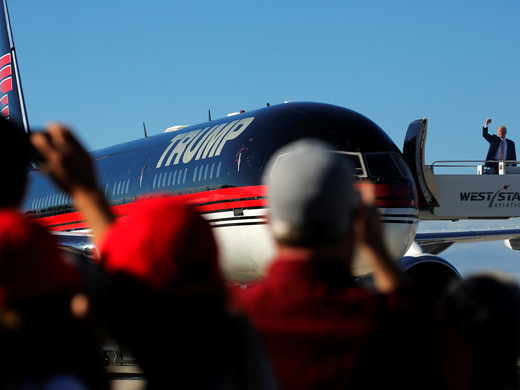Argentina is, yet again, in a state of crisis. Its new president, Javier Milei, took office on December 10. He inherited a bankrupt government, an overvalued peso and a spaghetti bowl of informal exchange rates flourishing under the watch of a reserve-stripped central bank (indeed, with about US$15 billion in negative reserves).
Once upon a time, Argentina was rich. From 1890 to 1950, its per capita income was similar to that of Western Europe (albeit considerably less evenly distributed). Even though that was long ago, it still shapes Argentinians’ welfare-state expectations.
But rather than promising to meet those oversized expectations, Milei won the elections vowing to use a chainsaw to cut government spending. In declaring that he will make Argentina “great again,” he is both winking at Donald Trump and stirring up Argentina’s middle-class nostalgia for a mythological past.
Argentina used to have a large middle class, but its economy has been stagnant for the past 12 years. Income per capita is now 12 percent below where it stood in 2011, and the International Monetary Fund (IMF) projects a 2.8 percent decline in 2024. According to the Universidad Católica Argentina, more than half the country’s population now lives below the poverty line. Some 15 percent of Argentinians, most of them children, are destitute.
Hence, Argentina is once again on the brink. Milei says he is determined to use his first year in office to attack the government’s fiscal deficit, remove price controls and liberalize Argentina’s overregulated economy. He also wants to replace the peso with the US dollar, but that could wait until next year.
Structural poverty is a long-term scourge that may compromise Argentina’s development, but the impoverishment of its middle class could compromise Milei’s capacity to govern the country, let alone make it “great again.”
For Argentina is no stranger to the political explosiveness of middle-class impoverishment. In December 2001, when the government exhausted its reserves and was forced to admit the peso was no longer “convertible” to US dollars at par, fixed-term deposits were locked up and banks had to erect barricades. Enraged Argentinians took to the streets, banging pots and pans and shouting “que se vayan todos” (meaning, all politicians should leave). Fernando de la Rúa, the incumbent president, resigned and had to be airlifted from the government’s Pink House terrace.
Despite the harshness of his fiscal austerity, Milei still retains an important measure of popular support.
Reform without Anaesthesia
Milei, a political outsider, channelled renewed weariness with politicians and won the recent elections by a large margin, drawing 56 percent of the vote. During his inaugural speech, he bluntly repeated, “no hay plata,” meaning there’s no money left. So no one was surprised when he sharply devalued the peso (now at about 1,000 pesos to the US dollar) and removed price controls used by the previous government to conceal inflation. Inflation has soared, and poverty with it.
Despite the harshness of his fiscal austerity, Milei still retains an important measure of popular support. Memories of the blunders of the previous government are still very fresh, and supporters of Cristina Fernández de Kirchner (the outgoing vice-president) are unwittingly helping Milei. A general strike that took place just 45 days after the inauguration, and street protests replete with images of hooded men tearing up sidewalks to stone the police, vandalizing shops and burning dumpsters in front of Congress, underscore a recent past that still generates more opprobrium than the present hardships. However, as finances get tighter, the middle class’s memories could grow shorter.
So far, Milei has no rivals for leadership. Yet preserving social stability will largely depend on his capacity to deliver a clear downward trend in inflation and contain economic recession. Otherwise, current sacrifices will end up overshadowing the fear of backsliding into “Kirchnerismo,” as Kirchner’s political followers are known.
Market analysts are hopeful for Argentina. Elon Musk cheered Milei in Davos, Switzerland, and billionaire investor Larry Fink may visit Argentina in May. Investors are attracted by Milei’s unbridled faith in the markets. But, they also wonder if his rush for draconian reforms will be socially accepted. The IMF shares their doubts. Argentina is its largest debtor, with an outstanding debt of about US$44 billion. With no access to private capital markets, the country’s solvency depends on continued IMF funding. On February 21, Gita Gopinath, the IMF’s first deputy managing director, unexpectedly visited Buenos Aires. She publicly supported Milei’s efforts to consolidate Argentina’s fiscal balance and build up reserves, but also asked the government to “support vulnerable segments of the population…to ensure that the burden of the adjustment does not fall disproportionately on working families.”
Calculated Risks or Just Recklessness?
So far, Milei has shown more courage than prudence and appears to have little willingness to compromise. He is fond of playing “chicken” and he is beginning to meet limits. But is he learning?
Predictably, he failed to bulldoze a set of ambitious structural reforms through the Congress (his party holds only 15 percent of the seats in the lower house and 10 percent of the Senate).
Milei appears to see peril in China and progress and liberty in the United States. In a geopolitically fractured world, Argentina now clearly sits in the Western camp. That has granted him the Biden administration’s good will. Yet the honeymoon may prove short-lived. On February 23, US Secretary of State Antony Blinken visited Buenos Aires. He and Milei exchanged compliments, and the latter invited him to wave to passing citizens from the presidential balcony. Yet barely one day later, Milei was hugging Trump, lauding his tenure as US president and saying he wished to see him again in the White House. Trump responded in kind, showering Milei with praise and celebrating their political kinship.
Yet Argentinian populism is not quite like the Trumpist model. To begin with, Milei is far from being a nationalist conservative. He claims to be an anarcho-capitalist who considers the state as “the enemy” and a “criminal association.” Moreover, while Trump boasts to be a “tariff man,” Milei stands for free trade. That said, both are fond of finding political inspiration in the rear-view mirror. Trump wants to revive an unrivalled world power, whereas Milei zooms into a more distant and diffuse past — a time when, he assures us, Argentina was a “leading world power.”
Could Milei Be Ousted?
Milei’s term ends December 10, 2027. He has not yet been 90 days in office, but Kirchner is already suggesting he could be forced out by social upheaval. Others say he could be impeached on grounds of mental disorder. However, Milei’s political leadership is still undisputed, and there is no helicopter waiting for him on the Pink House’s terrace.
And, Milei should not overestimate his middle-class support. The liberalization of some previously controlled prices (prepaid medicine, rentals and private schools) is testing the populace’s patience. Furthermore, obliterating the government’s fiscal deficit will require removing fiscally unsustainable — but politically very sensitive — subsidies for transportation, electricity, gas and water supply.
Milei will also need to control his abrasive tendencies. After failing to garner enough legislative support for an ambitious deregulation bill (that he pompously called “the basis and starting point for the freedom of Argentines”), rather than redoubling efforts to marshal the votes of the “friendly” opposition (led by former president Mauricio Macri, 2015–2019), he transformed the setback into a full-blown war against “traitors.”
In effect, his rhetorical excesses are hurting his own government. While his economic minister tries to convince peso holders that the official exchange rate will remain stable, losing just two percent every month to the US dollar (monthly inflation has been more than 20 percent), Milei keeps stirring up the idea of “dollarizing” the economy. That is doubly a mistake. The prospect of doing without the peso compounds the IMF’s doubts on the consistency of monetary and exchange rate policy and puts would-be investors in “wait-and-see” mode.
Argentina’s economy certainly requires a radical transformation. Milei has made sweeping promises and raised expectations. He has the courage to reprimand the country’s political caste. But to make Argentina “great again,” he will also need to learn to build consensus.



